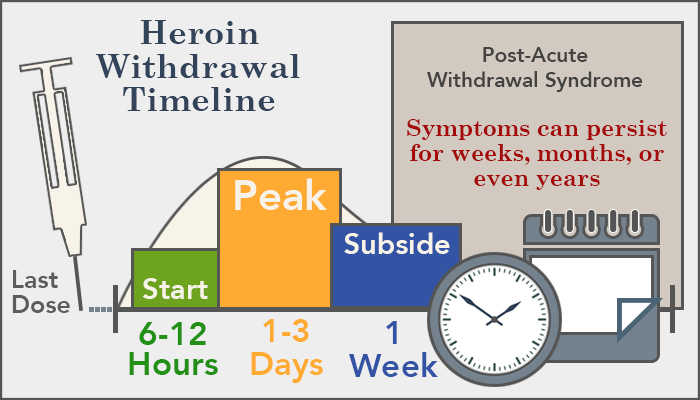Heroin Drug Rehab Huntington, West Virginia
Huntington, West Virginia Battles With Heroin Addiction
With a population of simply over 48,000, this rural town in West Virginia has been devastated by the heroin epidemic. On August 15, 2016, in a four-hour duration, 26 individuals overdosed, bringing this community to the national news. It brought attention to the heroin crisis and was the focus of a documentary on the heroin issue in the small town.
By the end of the year, there had actually been 1,217 overdoses in Huntington. By August of 2017, with 4 months to go before the year-end, the town had currently seen 1,148 overdoses.
West Virginia Heroin-Related Stats
- Heroin-related deaths have been steadily increasing over the past decade, with a spike starting in 2011.
- The number of heroin-related deaths is nearly thirty times higher than it was just a decade ago.
- Most deaths are accidental overdoses occurring in young males.
- Heroin-related over-doses among males are more than three times higher than among females.
- Nearly half (119) of all heroin-related overdose deaths in the past 5 years occurred in people aged 25-34.
- West Virginia has the eleventh highest heroin-related overdose rate in the nation.
- Three percent of West Virginia high school students have ever tried heroin.
How to Help a Heroin Addict In Huntington, West Virginia
If you or somebody you like is addicted to heroin in Huntington West Virginia, you’re not alone, and there is assistance available. When someone is fighting an addiction to heroin, the liked ones surrounding them might feel unsure of how to deal with the issue. Addiction to heroin can trigger a variety of stressful symptoms, and chances are the person wishes to stop however does not understand how or continues utilizing to avoid the beginning of withdrawal signs.
When you’re approaching somebody who might not yet confess they need assistance, you can anticipate experiencing some very common emotions, consisting of:
- Denial.
- Anger.
- Justifications of their drug use.
- Avoidance.
- Your loved one might have reasons for unfavorable effects that are triggered by the drug use. For example, if they lost their task because of decreasing performance, they may instead blame it on a toxic workplace or bad employer.
When at first raising the idea of treatment, do your finest to avoid negative dialogue that concentrates on the judgment of them or their actions. Attempt expressing the only issue for them and asking if they’re open to hearing what you need to say. Offer examples of how their compound usage has actually harmed them– without turning to blame. This might assist them to come to discover their own reasons for seeking treatment.
The Effects Heroin Has On your Brain
Heroin binds to and triggers specific receptors in the brain called mu-opioid receptors (MORs). Our bodies include naturally occurring chemicals called neurotransmitters that bind to these receptors throughout the brain and body to manage discomfort, hormonal agent release, and sensations of well-being. When MORs are triggered in the receptor center of the brain, they promote the release of the neurotransmitter dopamine, triggering a reinforcement of drug-taking behavior. The effects of triggering opioid receptors with externally administered opioids such as heroin (versus naturally taking place chemicals within our bodies) depend on a range of aspects: how much is utilized, wherein the brain or body it binds, how strongly it binds and for the length of time, how quickly it gets there, and what happens later.
What are the immediate (short-term) effects of Heroin use?
Once heroin enters the brain, it is transformed to morphine and binds quickly to opioid receptors. People who use heroin usually report feeling a rise of pleasurable experience– a “rush.” The strength of the rush is a function of just how much drug is taken and how quickly the drug goes into the brain and binds to the opioid receptors. With heroin, the rush is generally accompanied by a warm flushing of the skin, dry mouth, and a heavy sensation in the extremities. Nausea, throwing up, and severe itching might also occur. After the preliminary effects, users generally will be sleepy for a number of hours; psychological function is clouded; heart function slows; and breathing is also badly slowed, in some cases enough to be life-threatening. Slowed breathing can also lead to coma and irreversible brain damage.
Opioids Act on Numerous Places in the Brain and Nervous System.
- Opioids can depress breathing by changing neurochemical activity in the brain stem, where automatic body functions such as breathing and heart rate are managed.
- Opioids can enhance drug-taking behavior by altering activity in the limbic system, which manages feelings.
- Opioids can block pain messages sent through the spinal cord from the body.
What are the long-term effects of heroin use?
Repeated heroin usage alters the physical structure13 and physiology of the brain, developing long-term imbalances in neuronal and hormonal systems that are not quickly reversed. Studies have actually shown some degeneration of the brain’s white matter due to heroin usage, which may affect decision-making abilities, the ability to manage behavior, and responses to difficult situations. Heroin likewise produces extensive degrees of tolerance and physical reliance. Tolerance happens when more and more of the drug is required to accomplish the same results. With physical dependence, the body adapts to the existence of the drug, and withdrawal signs take place if usage is minimized abruptly.
Withdrawal may occur within a few hours after the last time the drug is taken. Signs of withdrawal consist of restlessness, muscle and bone pain, insomnia, diarrhea, throwing up, cold flashes with goose bumps (“cold turkey”), and leg motions. Significant withdrawal signs peak between 24– 48 hours after the last dose of heroin and subside after about a week. Nevertheless, some individuals have shown consistent withdrawal signs for lots of months. Finally, duplicated heroin usage frequently leads to heroin use disorder– a persistent relapsing disease that surpasses physical dependence and is characterized by unmanageable drug-seeking, no matter the repercussions.19 Heroin is incredibly addictive no matter how it is administered, although paths of administration that allow it to reach the brain the fastest (i.e., injection and smoking) increase the risk of developing heroin use disorder. When an individual has heroin use condition, looking for and utilizing the drug becomes their main function in life.
What To Do If you or a Loved one have signs of addiction
The difference between dependency and addiction is a matter of degree. Inability to function without the opioid in your system is clearly a sign that a mere reliance on the drug has turned into a critical need for the drug. A doctor can diagnose dependency and addiction. In fact, this medical assessment becomes step one in the recovery process
It is at this point that the options for heroin treatment or the treatment for prescription meds are considered. The initial assessment will help both physicians and recovery specialists determine whether residential inpatient heroin detox and treatment or outpatient programs should be recommended. The rigorous pre-intake evaluation will also help determine the type of detox that is best.
What Questions Should I Ask When Looking For A Huntington, West Virginia Heroin Treatment.
When you enter into a heroin Huntington, West Virginia Treatment center, be prepared to ask the right questions. The right questions will give you the info you need to make an informed decision about the next action you wish to take. The person you speak with will be prepared to respond to alot of concerns as you can think of and wishes to assist you to find the best addiction treatment center for you.
If you or a loved one is seeking treatment, you may ask questions such as:
- What kinds of rehab programs are near me?
- What are the benefits of doing an inpatient program or an outpatient program?
- What type of therapy does each program offer?
- What happens when you go to rehab?
- What should I do if I think a loved one needs rehab?
- What are the next steps? How do I enroll?
- Will my insurance cover the cost?
- How long will I be gone if I do an inpatient program?
- Can I bring my Pet to Rehab?
- Can I leave treatment any time or am I committed to a certain length of stay?
- Can my loved ones come to visit me? Can I go visit my loved one in rehab?
What has been determined in pre-intake becomes valuable information for formulating a customized treatment plan. As part of treatment, you will also need to know what is expected of you in drug treatment and what you need to learn about your addiction to aid in recovery.
Getting Professional Heroin Addiction Rehab Help
If a user does not enlist into heroin addiction rehab treatment, chances of recovery are really slim. Can heroin addicts recover? They certainly can be provided that they have help from expert heroin treatment centers that have the ability to use them heroin recovery options.
The issue is that withdrawal symptoms are extremely uneasy. Heroin addiction treatments will often focus on managing or reducing these where possible. A few of the withdrawal symptoms include hallucinations, physical pains, tremblings, sensations of queasiness, throwing up, increases in agitation and hostility, and seizures.
What Does Heroin Withdrawal Look Like?
Heroin withdrawal symptoms may only last a week or so, but the symptoms can be severe and include:
- Nausea
- Abdominal pain
- Sweating
- Shaking
- Nervousness
- Agitation
- Depression
- Muscle spasms
- Cravings for drugs
Medical detox providers use medications and therapy to soothe symptoms, boosting the chances that a person will move through withdrawal safely and successfully.
What to expect when going through a Heroin Detox

Heroin is a short-acting opioid, suggesting that it works quickly however also leaves the bloodstream rapidly. The National Highway Traffic Safety Administration (NHTSA) estimates that heroin withdrawal symptoms start within 6-12 hours of the last dosage, peak in 2-3 days, and last 5-10 days in total.
Detox is the set of interventions used to manage the symptoms of withdrawal. Since withdrawal can peak after a couple of days of the last dose, detox in a drug abuse treatment center that uses medical detox might be the easiest method to withdraw from heroin.
Medical detox typically begins prior to heroin totally leaves the system and generally takes in between 5 and 7 days. For someone who is more greatly based on heroin, detox might last a bit longer, approximately 10 days. Medical detox typically includes medications and therapy to help the body and brain recover from its dependence on heroin. High blood pressure, heart rate, breathing, and temperature levels are all monitored to help keep individuals safe and protected throughout the entire procedure.
Heroin Addiction Medications
Medical management is essential in helping wean people off heroin by helping to lower yearnings and prevent future use. Some medications typically recommended to people addicted to heroin include:
- Buprenorphine
As an opioid, buprenorphine connects with the same receptors as heroin, though its impacts are restricted. This aids with withdrawal and cravings. - Methadone
Although more powerful than buprenorphine, methadone basically operates in the same method. Methadone use is controversial because it can build up in the body if taken frequently, making an overdose more likely; it is likewise potentially addicting itself. - Naltrexone
Likewise used in treating alcohol addiction, naltrexone obstructs opioid receptors. This reduces cravings and prevents heroin from having a result when taken. - Suboxone
This is a combination of buprenorphine and naltrexone. This mix does not just alleviate withdrawal pain, however also prevents the effects of heroin.
Why Residential Heroin Treatment is Necessary.
The threat of heroin relapse is high, particularly throughout the early part of the recovery procedure. People can amend their medications and put their health at threat, or they can face dealerships and street hawkers with heroin to sell. Temptation can be around every single corner when individuals keep living at home, however much of that vanishes in a residential program. Here, no drugs are permitted. It’s a tidy environment, filled with individuals who want to get better and staffers who want to assist people to do simply that.
Of course, people in outpatient programs could constantly work in their communities. Some definitely do so. However an inpatient program makes involvement just much easier. There are no coaches to work with, equipment to buy, or sessions to establish. The treatment group makes it all available, and participation is encouraged. For some individuals in healing, that ease makes all the distinction. When it’s easy, they’ll do it. When they do it, they can improve.
Huntington, West Virginia Inpatient Care Therapy Options
Most former heroin addicts have inpatient rehabilitation to thank for their healing. Inpatient rehab Huntington, West Virginia eliminates the outdoors environmental and social factors that make it more difficult to accomplish sobriety.
Throughout rehab, citizens have a structured regimen that consists of everyday treatment, support system and activities. Every rehab is a little bit various with the kinds of activities they provide. Some focus on physical in addition to mental health, supporting everyday exercise. Some are more interesting, scheduling hiking trips and rock climbing. Others are more relaxed and might use a more elegant treatment setting
Detox is also a vital part of inpatient rehab. Since heroin withdrawal signs can be intense, lots of people will use the drug to ease their pain even if they are serious about stopping. A medically supervised detox helps reduce withdrawal signs, which is frequently accomplished with the assistance of medication.
Individual Therapy Sessions
When you enlist in a residential drug addiction treatment program, you will typically be assigned to a professional therapist who will monitor your case. A minimum of as soon as a week, you will consult with this person for individual treatment sessions, which will last for about 45 minutes.
Group Therapy for Opioid Treatment
Group treatment will have a qualified leader performing the session . Unlike family therapy, the members in group therapy will not typically have a pre-existing relationship beyond sessions.
Group therapy sessions can be carried out in different restorative settings and levels of care, including
- Hospital-based inpatient programs.
- Residential programs.
- Outpatient healing programs.
- For someone dedicated to ending their substance abuse and starting a duration of healing, group treatment is an option that can be as efficient as private sessions 3.
Benefits
Group treatment has a number of beneficial aspects that equate to or go beyond private therapy, such as the ability to 3:
- Offer members education about the recovery procedure.
- Supply support and motivation from peers to preserve healing objectives.
- Offer members the opportunity to observe issues experienced by others in recovery and
- observe their approaches of problem-solving.
- Empower group members by motivating them to provide assistance and feedback to other members.
- Teach healthy coping skills to manage day-to-day stressors without resorting to substance usage.
- Boost structure and regimen in the lives of group members.
- Construct a sense of optimism, self-worth, and belief in the group members.
- Develop relationships between group members that can be utilized beyond sessions for support and support.
- Effectively deal with numerous people concurrently with one therapist, permitting those customers quicker access to treatment.
- Make use of healing tools (such as tough unreasonable beliefs and confronting poor decision-making) to customize behaviors.
Outpatient Options for Opioid Dependency
Outpatient treatment varies in the types and intensity of services provided. Such treatment costs less than residential or inpatient treatment and typically is better for people with tasks or substantial social supports. It needs to be kept in mind, however, that low-intensity programs might provide a little bit more than drug education. Other outpatient designs, such as intensive day treatment, can be equivalent to residential programs in services and effectiveness, depending on the private client’s attributes and needs. In many outpatient programs, group counseling can be a significant part. Some outpatient programs are likewise created to treat clients with medical other mental health issues in addition to their drug conditions.
If you are searching for a heroin drug rehab for detox and treatment for heroin or opiates/opioids contact our helpline now. Inpatient drug rehabs in Huntington, West Virginia offer help for those struggling from substance abuse.






